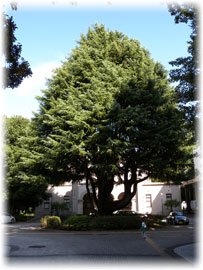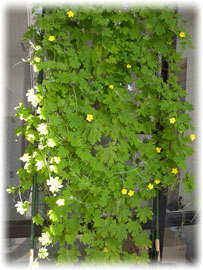CURRICULUM OVERVIEW: CULTIVATING THE “TREES” OF INTERNATIONAL RELATIONS

“Roots”: The undergraduate curriculum in International Relations is designed to equip students with a solid foundation in the rudiments of the social sciences. Academic training is intended to cultivate strong and deep “roots” which will provide stable support to the “trees” of International Relations (The former refers to rudimentary knowledge in the social sciences, while the latter refers to the overall process of studying International Relations).
- Lectures catered to undergraduate students in the latter half of their second year, and/or in their third year
“Trunk”(Compulsory lectures): All undergraduates majoring in International Relations must take three compulsory courses listed below. These courses are quintessential for understanding and analyzing the diverse phenomena in the field of International Relations, thus serving as the “trunk” of the undergraduate study in International Relations. Students are to take these courses at the designated semesters indicated below.
- International Politics: 4th semester
- International Law: 5th semester
- International Economics: 6th semester
“Large Branches” (non-compulsory lectures):
- History of International Relations I/II, International Organizations I/II, International Transactions, International Systems, International Culture, International Finance, International Business Administration, International Cooperation, Developmental Economics, World Model, Environmental International Relations
CURRICULUM OVERVIEW: MAKING THE “FLOWERS” OF INTERNATIONAL RELATIONS BLOOM

“Branches and Leaves”: Growing branches and leaves is an important aspect in the cultivation of a tree. Each undergraduate student is encouraged to cultivate the “branches and leaves” which grow from his own “stem” and “large branches”. Students may take elective courses to purse their own academic interest. Students may also take courses offered other programs, such as the Course in Interdisciplinary Social Sciences (ISS).
- Lectures on specific issues in IR: Politics of National Integration, International Japanese Society, Japanese Diplomacy, Study on Environment and Civilizations, Comparative Organizations, and others
- Lectures on regional studies: European International Political Economy I/II, African International Relations, Political Economy in Russia and Eastern Europe, Asia-Pacific International Relations, and others
- Seminars: Seminar on History in International Relations, Seminar on International Organizations, Seminar on International Rransactions, Seminar on International Systems, Seminar on International Culture, Seminar on International cooperation, Seminar on International Economic Policies, Seminar on International Political Theories, Seminar on World Model, Seminar on Environment and Civlizations, Seminar on Data Analysis in International Relations, and others
“Flowers”: The blooming of flowers are to be seen in the form of the writing of Honors Theses (taken in the fourth year)
- Academic Guidance for Honors Thesis I/II: Only applicable to fourth year students.
“Fruits”: To be produced bountifully by each and every student, after his or her graduation.
